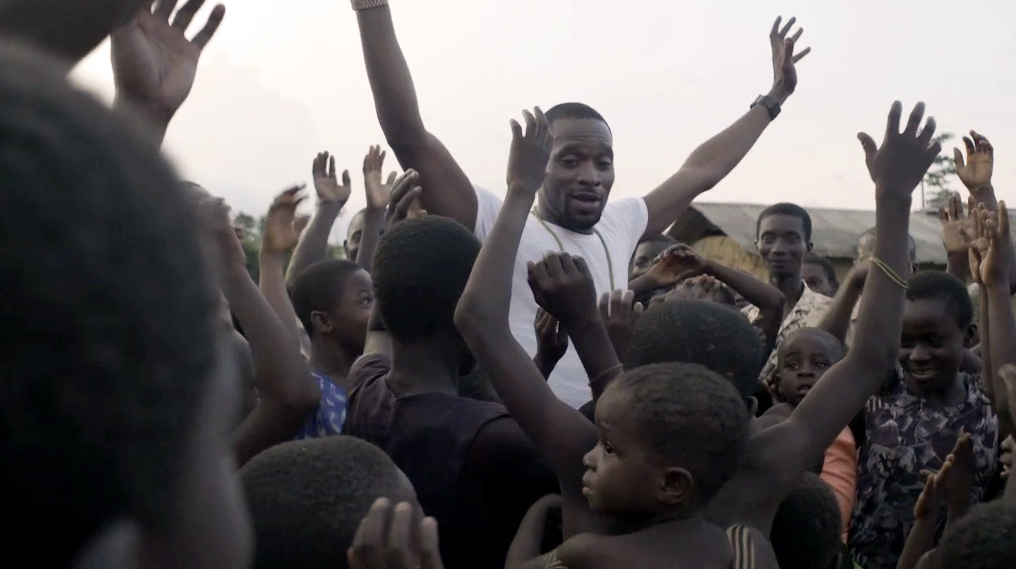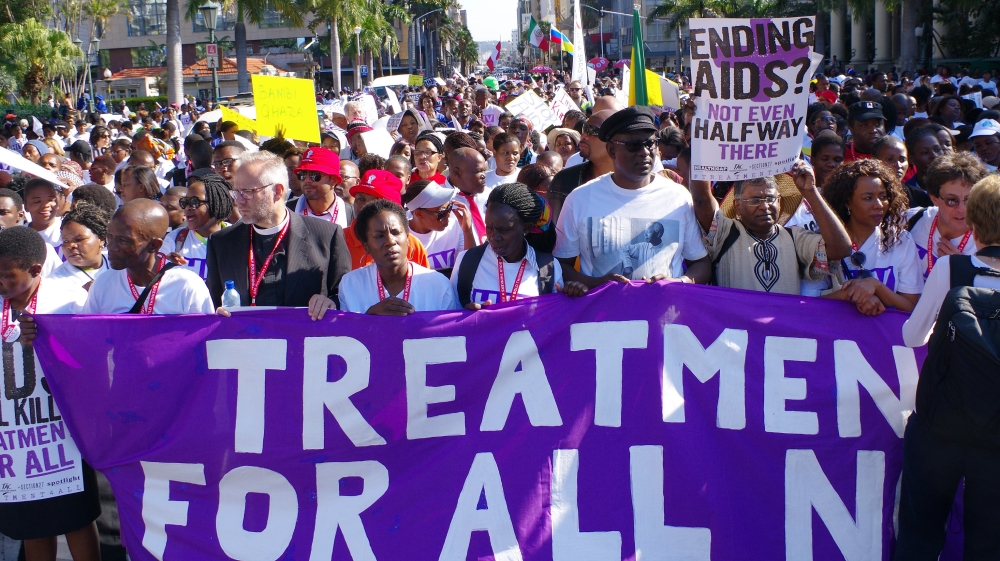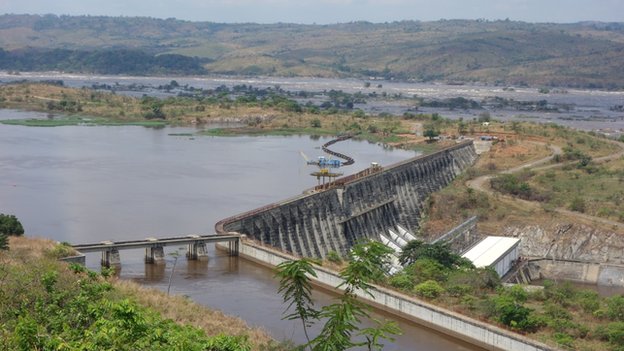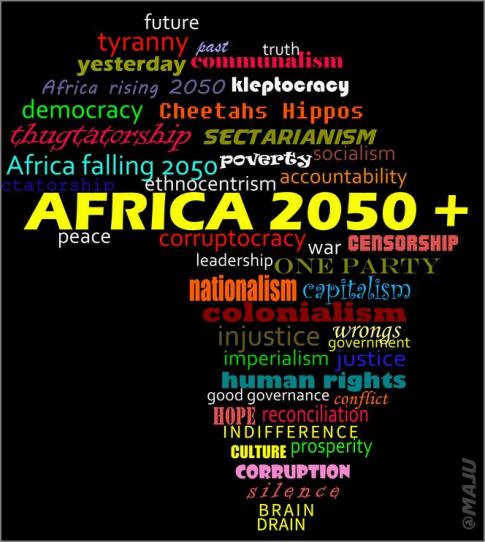Dorcas Makgato: Botswana worked hard at confronting HIV
July 19, 2016 Durban, South Africa – Sixteen years ago, Botswana found itself at the centre of a major health crisis. At least 36 percent of the adult population were HIV positive, and life expectancy had plummeted to 49. Over the past decade, however, the country worked to turn the crisis around.
In 2002, it became the first African country to roll out Antiretroviral, or ARV, treatment and today the infection rate has dropped to 20 percent, while life expectancy has increased to 64. Mother to child transmission of the virus is now 1.9 percent from a high of 40 percent a decade back.
Al Jazeera spoke to health minister Dorcas Makgato about the next phase of the treatment plan and how Botswana plans on reaching key populations still vulnerable to the virus.
Al Jazeera: Botswana is a success story. How did it happen?
Dorcas Makgato: Right from the beginning we decided to approach the issue boldly. We were very open about the size of the scourge and not shying away from the problem.
Bold in the sense that we admitted that there was a problem and bold in bringing all stakeholders together, to have a common purpose in fighting HIV and Aids.
Those critical steps were the foundation of where we are today. You recall that we were the first African country to start the roll out of treatment.
I think we are also the first to start the testing across the board and we are one of the first now again taking it to the next level with the Treat All strategy . It is that boldness and resolve, I think, that has taken us to where we are today.
READ MORE: Can a team of doctors end Aids by 2030?
Al Jazeera: What is Treat All?
DM: So we don't discriminate, if you go to our facility today and you find that you are HIV positive, we put you on treatment. We don't ask how you got it or about your orientation. I think what also helps is that the treatment itself is no longer the treatment of early days which was very strong to the liver.
With science there's improvements and so forth, so I think we are well on our way to achieving the 90-90-90 as well as ending AIDS by 2030. [90-90-90 is the UNAIDS ambitious strategy: By 2020, 90 percent of all people living with HIV will know their HIV status; 90 percent of all people with diagnosed HIV infection will receive sustained antiretroviral therapy; 90 percent of all people receiving antiretroviral therapy will have viral suppression.]
To me, the figures speak for themselves … we had a funding gap at the beginning, but in the longer term it was beneficial for Botswana and the return that we expect is epidemic control.
I come from the background of trade. And I looked at it as a matter of a return on investment. So it made a lot of sense for us to say, based on the research, based on our figures, based on the stats, it makes sense for us to go now for a treat all [approach].
Al Jazeera: While there is talk of ending AIDS, tensions have grown regarding donors reducing funding. How do you navigate this?
DM: I think first of all it's getting your story and contextualising it in economic terms. Because you must be able to show, this is what it's costing me now and you cannot just look at HIV/AIDS, you must look at all the relatives of HIV and AIDS. You must look at how much you are spending on TB, how much you are spending on STDs, how much you are spending on all these other diseases that are associated with HIV and AIDS.
How much you are losing in terms of productivity and the minute you start doing that, it will show you that you don't have any choice but to basically confront this issue now. I think it's about time that each and every health minister looks at sustainability as part of the modelling of any approach or any initiative.
Secondly, I think we must continue to argue.
Botswana as you know, is now a middle-income country. I've argued forcefully that my disease burden matters to me. Therefore if I go and ask for funding and ask for partners to come in, they cannot just talk about my GDP per capita income and stuff like that, they must also look at the challenges that I am faced with.
I think the fact that so far we have put in more than 60 percent of our funding for HIV and AIDS, the fact that the government of Botswana has surpassed the Abuja Declaration of spending 17 percent on the health budget. Surely there must be partners out there that will say, “This country is doing the best that it can, we want to be associated with the success that will come with that boldness and the resolve.”
Al Jazeera: Is Botswana still looking for partners. Can you afford it on your own?
DM: No, we cannot afford it on our own I can tell you now. Even as a middle income country, I had a funding gap of about US $15.6 million and I had to go to the US and say, “Look do you want to help me or not?” Well I didn't put it that way. I was much nicer, and they did.
READ MORE: Aids 2016: All you need to know about key summit
Al Jazeera: Which demographic remains the most vulnerable to HIV in Botswana?
DM: The youth, the girl child, in particular, that is where all our energies must be. For me, if you say key population there is this whole debate of key population being confined to what others want it to be.
I must focus on is the youth, because they are the leaders of tomorrow. They are the ones that are going to live much longer than us and we have to intensify our efforts and make sure that whatever our efforts are, our initiatives are, we are listening to the voice of the youth, we're in alignment with what works for them.
We can't prescribe for them, we can't think for them, so they must be included in this transition, but they must be at the core of the strategy.
Al Jazeera: The youth have always been affected disproportionately. Why are we still stuck in that space?
DM: We are stuck in that space because it is my sincere belief that we have come up with solutions for the youth, rather than getting youth to be part of creating the solution. We think we are older and we know better.
We must listen to their voices so that as we tailor programmes, it has to be a programme that works for them. We had role models before, but our role models were not young people. They did not speak the language of the youth. Also, clinics are often not youth-friendly. Those who run clinics look at those kids as a mother, and they are often scared. He or she is not able to understand the challenges.
So I think it needs to be comprehensive. The parents, the community, and government and initiators of programme need to be on the same level.
Al Jazeera: Has Botswana become a type of case study or example for other countries?
A lot of countries do come to benchmark, pick up what we have excelled in, learn from the mistakes that we have made and learn from the challenges that we still have.
We are quite happy to share with all countries, we're not saying that all things are perfect in Botswana, but we're just saying that, we have worked very hard at confronting the problem of HIV/AIDS and it seems to be paying off.
This interview has been edited for clarity and brevity.
Follow Azad Essa on Twitter: @azadessa
The post Dorcas Makgato: Botswana worked hard at confronting HIV appeared first on African Media Agency.
Source:: http://amediaagency.com/dorcas-makgato-botswana-worked-hard-at-confronting-hiv/















